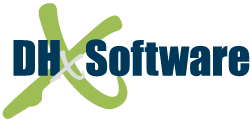As a full-service custom software services and business consulting agency, DHx...
-
Software Services
Software Services
- Workflow and Design Strategy Consulting
- Application Design & Development
- Application Modernization
- Application Integrations
- Custom Portals & Websites
- Data Management & Migration
- Enterprise Resource Planning
- Custom Sales Platforms
- Microsoft Access Migrations
- Cloud Migrations
- Custom Support Services
- eLearning Solutions
Recent Blog
 2024 in Tech: What's Changed and What's Nextread more
2024 in Tech: What's Changed and What's Nextread more -
Field Services
Field Services
Recent Blogs
 2024 in Tech: What's Changed and What's Nextread more
2024 in Tech: What's Changed and What's Nextread moreAs a full-service custom software services and business consulting agency, DHx...
-
Financial Services
Financial Services
Recent Blog
 2024 in Tech: What's Changed and What's Nextread more
2024 in Tech: What's Changed and What's Nextread moreAs a full-service custom software services and business consulting agency, DHx...
- Technologies
- Case Studies
-
About
Recent Blog
 2024 in Tech: What's Changed and What's Nextread more
2024 in Tech: What's Changed and What's Nextread moreAs a full-service custom software services and business consulting agency, DHx...
- Let's Connect
-
Software Services
- Workflow and Design Strategy Consulting
- Application Design & Development
- Application Modernization
- Application Integrations
- Custom Portals & Websites
- Data Management & Migration
- Enterprise Resource Planning
- Custom Sales Platforms
- Microsoft Access Migrations
- Cloud Migrations
- Custom Support Services
- eLearning Solutions
- Field Services
- Financial Services
- Technologies
- Case Studies
- About
- Let's Connect
-
Software Services
Software Services
- Workflow and Design Strategy Consulting
- Application Design & Development
- Application Modernization
- Application Integrations
- Custom Portals & Websites
- Data Management & Migration
- Enterprise Resource Planning
- Custom Sales Platforms
- Microsoft Access Migrations
- Cloud Migrations
- Custom Support Services
- eLearning Solutions
Recent Blog
 2024 in Tech: What's Changed and What's Nextread more
2024 in Tech: What's Changed and What's Nextread moreAs a full-service custom software services and business consulting agency, DHx...
-
Field Services
Field Services
Recent Blogs
 2024 in Tech: What's Changed and What's Nextread more
2024 in Tech: What's Changed and What's Nextread moreAs a full-service custom software services and business consulting agency, DHx...
-
Financial Services
Financial Services
Recent Blog
 2024 in Tech: What's Changed and What's Nextread more
2024 in Tech: What's Changed and What's Nextread moreAs a full-service custom software services and business consulting agency, DHx...
- Technologies
- Case Studies
-
About
Recent Blog
 2024 in Tech: What's Changed and What's Nextread more
2024 in Tech: What's Changed and What's Nextread moreAs a full-service custom software services and business consulting agency, DHx...
- Let's Connect
-
Software Services
- Workflow and Design Strategy Consulting
- Application Design & Development
- Application Modernization
- Application Integrations
- Custom Portals & Websites
- Data Management & Migration
- Enterprise Resource Planning
- Custom Sales Platforms
- Microsoft Access Migrations
- Cloud Migrations
- Custom Support Services
- eLearning Solutions
- Field Services
- Financial Services
- Technologies
- Case Studies
- About
- Let's Connect
The Two Strategic Functions Of A Learning Management System

Companies and organizations looking to establish a robust employee training system may be looking into several options, including a learning management system (LMS). If you’re trying to decide whether an LMS is suitable for your business, it’s essential that you understand more about the benefits and two strategic functions of a learning management system.
Two Strategic Functions of an LMS
While an LMS has many functions, it has two strategic properties that help companies reach widespread knowledge enhancement more quickly.
Manage and Track Training
One of the most powerful strategic functions of an LMS is its ability to manage and track training across employees and offices. Whether you have 100 employees or 1,000, an LMS tracks the progress of every single one. You can also use these insights to see which employees are taking training, which trainings are most popular, and which ones are most effective.
Reduce the Cost of Training
While training is important for knowledge building among employees, it can often strain company budgets. Investing in an LMS can help save money without having to cut training.
By using an LMS, you cut back on the in-person and administrative costs that come with internally managing training. You’ll save money on in-person trainers, classroom space, and travel logistics. An LMS also adds value through its ability to analyze training data, which you can use to improve your eLearning courses.
Other Benefits of an LMS
Reducing costs, managing data, and tracking metrics are just some of the great benefits of using an LMS for your company’s training. Here are some other benefits of an LMS:
- Scalable: Some smaller companies may avoid investing in an LMS until they see growth. An LMS solves this problem by growing with your business so that you can start right now!
- Retain Staff: Workers are more likely to stay in a job where they feel like they’re continually developing skills. Providing your employees with a comprehensive training platform like an LMS will make them more likely to stick around.
- Dynamic Trainings: Some employee trainings are boring, requiring workers to read about a topic and answer questions. An LMS will integrate dynamic activities like games and microlearning into every training to make learning more engaging.
- Self-Paced: Your employees will appreciate the self-paced nature of an LMS. They can take trainings on their own time instead of being bound to a fixed training schedule. That way, they can handle important tasks without interrupting their learning.
Talk Corporate Training With an Expert
An LMS will benefit your business in several ways. It will increase efficiency, improve performance, and lead to happier workers. The two strategic functions of a learning management system also allow you to draw insights from data and reduce costs without sacrificing training quality.
If you’re ready to implement an LMS into your company’s operations, DHx Software is here to help. We develop customized software solutions for small and mid-sized businesses that drive efficiency and change. Schedule a call with a member of our team today to talk about your next project.
- By DHx SoftwareYou may also like

Field service companies often encounter various pain points that hinder their operational efficiency and growth. Outdated legacy systems and the integration of new and old technologies pose...

Learning Management Systems are empowering businesses to improve their product offerings and customer service through remote training for employees, partners, and customers alike. They offer a...
